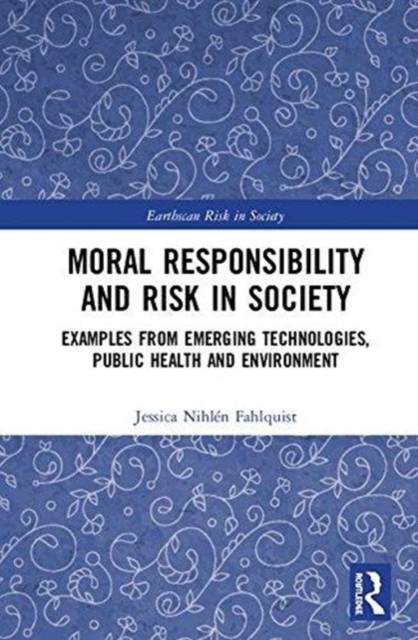
- Retrait gratuit dans votre magasin Club
- 7.000.000 titres dans notre catalogue
- Payer en toute sécurité
- Toujours un magasin près de chez vous
- Retrait gratuit dans votre magasin Club
- 7.000.0000 titres dans notre catalogue
- Payer en toute sécurité
- Toujours un magasin près de chez vous
Moral Responsibility and Risk in Society
Examples from Emerging Technologies, Public Health and Environment
Jessica Nihlén FahlquistDescription
Risks, including health and technological, attract a lot of attention in modern societies, from individuals as well as policy-makers. Human beings have always had to deal with dangers, but contemporary societies conceptualise these dangers as risks, indicating that they are to some extent controllable and calculable. Conceiving of dangers in this way implies a need to analyse how we hold people responsible for risks and how we can and should take responsibility for risks.
Moral Responsibility and Risk in Society combines philosophical discussion of different concepts and notions of responsibility with context-specific applications in the areas of health, technology and environment. The book consists of two parts addressing two crucial aspects of risks and responsibility: holding agents responsible, i.e. ascribing and distributing responsibility for risks, and taking responsibility for risk. More specifically, the book discusses the values of fairness and efficacy in responsibility distributions and makes distinctions between backward-looking and forward-looking responsibility as well as individual and collective responsibility. Additionally, it analyses what it means to take responsibility for technological risks, conceptualising this kind of responsibility as a virtue, and furthermore, explores the notion of responsible risk communication and the implications for adult-child relationships.
This book will be of great interest to students and scholars of environmental ethics, bioethics, public health ethics, engineering ethics, philosophy of risk and moral philosophy.
Spécifications
Parties prenantes
- Auteur(s) :
- Editeur:
Contenu
- Nombre de pages :
- 186
- Langue:
- Anglais
- Collection :
Caractéristiques
- EAN:
- 9781138192904
- Date de parution :
- 02-10-18
- Format:
- Livre relié
- Format numérique:
- Genaaid
- Dimensions :
- 156 mm x 234 mm
- Poids :
- 462 g

Les avis
Nous publions uniquement les avis qui respectent les conditions requises. Consultez nos conditions pour les avis.






